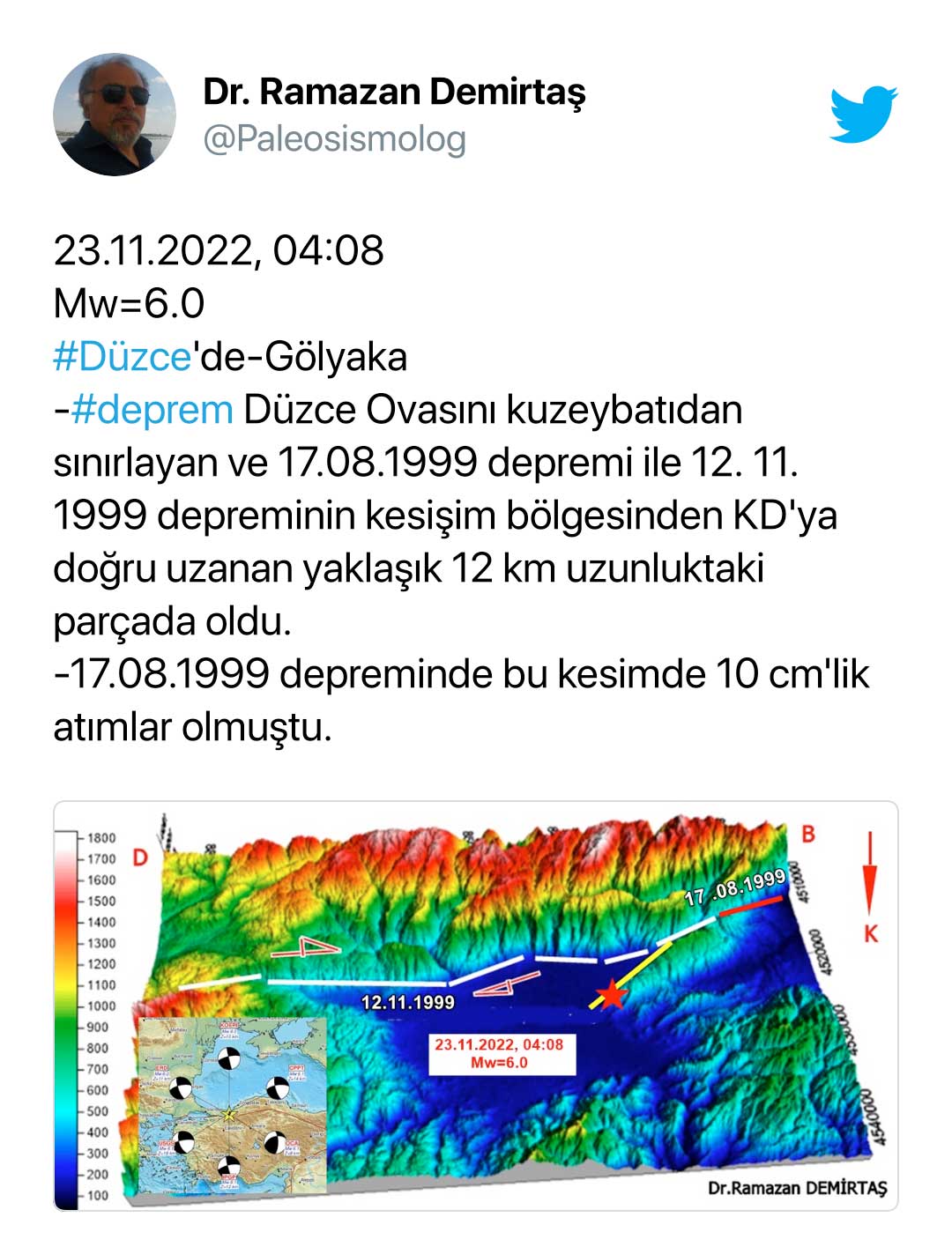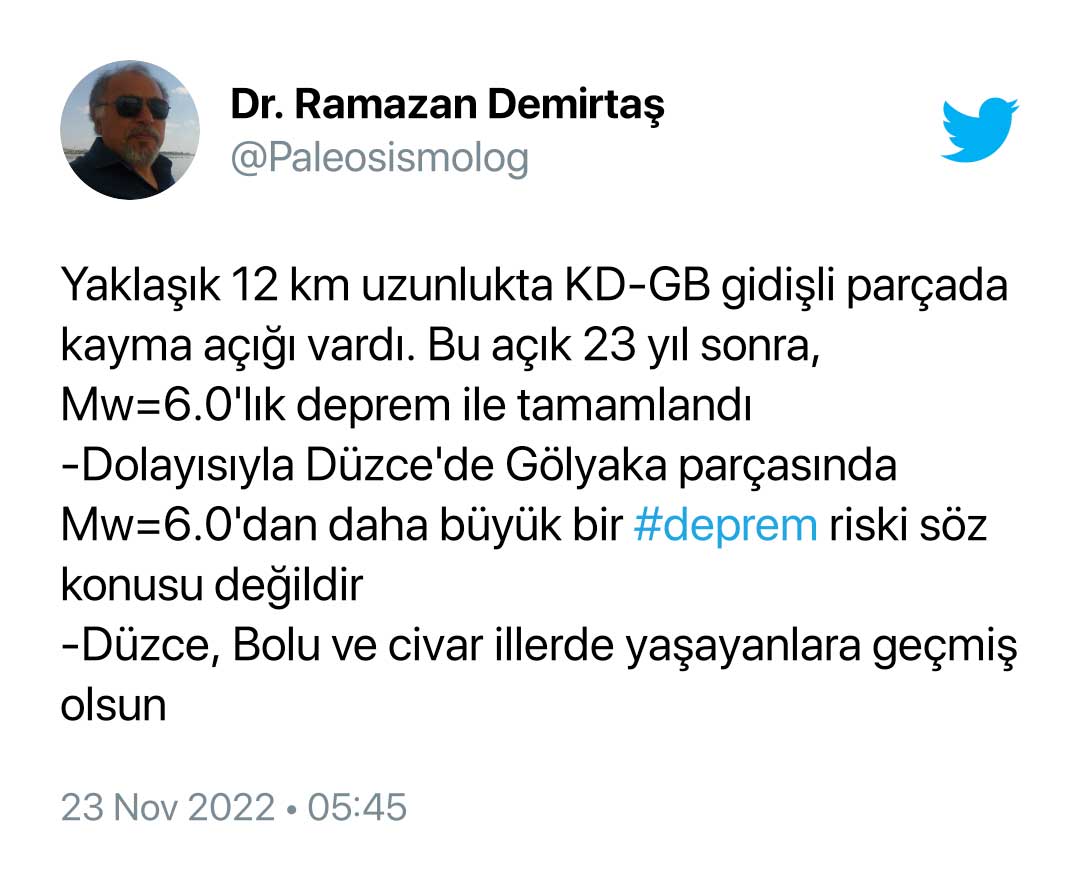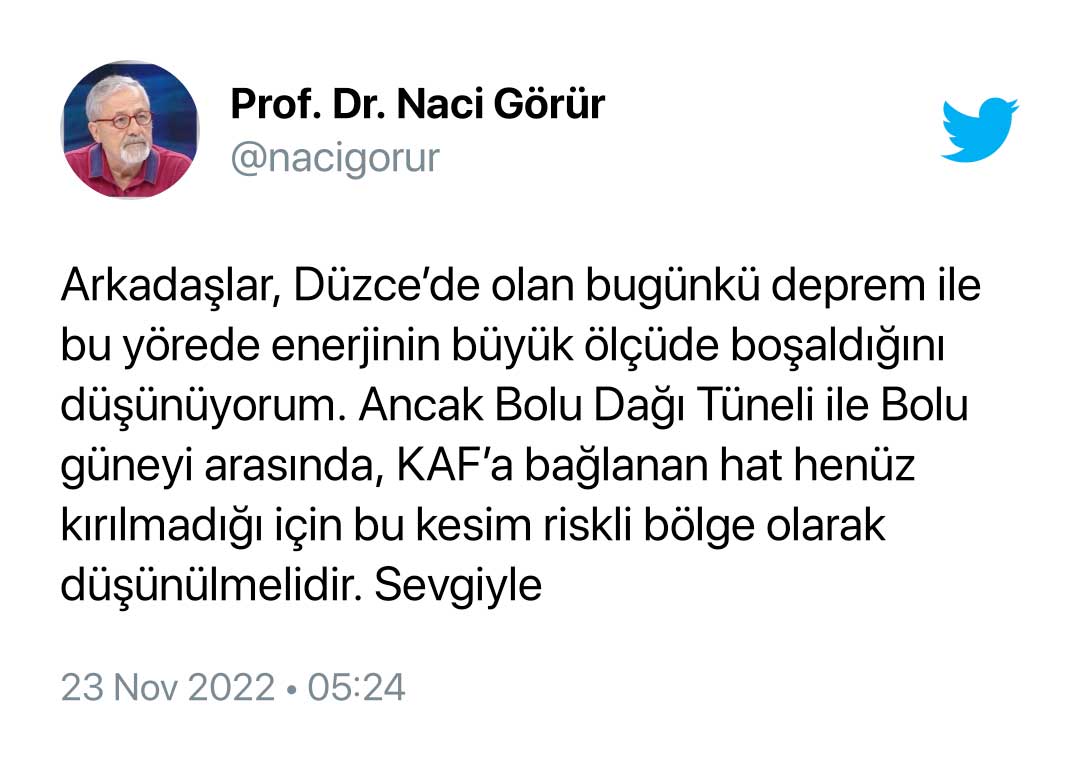Years after the Düzce Earthquake in 1999, Turkey started the day early with a severe earthquake that took place in the same region and again at night. After the earthquake, where there was no loss of life, experts evaluated the possible effects.
This 6.1 magnitude earthquake, which took place in Düzce at 04.08 at night, only 6.5 kilometers deep It was felt in many cities.
After the earthquake, planned electricity and natural gas cuts were made in the region, resulting in problems in internet access. We have compiled the details and forward-looking assessments that earthquake experts announced on Twitter.
prof. Dr. Celal Şengör pointed to the bad: The Istanbul earthquake may be closer!
Speaking to Fatih Altaylı, Prof. Dr. Celal Şengör made a statement about the earthquake in a different direction than other experts. Şengör’s statements were as follows:
“This earthquake is terribly bad news. This earthquake is an indication that the movement of the North Anatolian fault is not fully understood by all geologists. This is the second earthquake in Düzce in 22 years. However, everyone said that Düzce was de-stressed and For a long time, he thought that there would be no serious earthquake. We saw that it wasn’t.
This means: The Istanbul earthquake is pretty close. The accumulation of stress is approaching its peak.
What Naci Görür said is true. We can expect an earthquake towards Bolu Mountain. But there was an earthquake there in 1944. There is stress, but not enough to cause a major earthquake.
The main accumulation of stress was towards the West. well Adapazari, Golcuk and Istanbul.
Celal Şengör also warned Fatih Altaylı and all Istanbul residents as follows:
“I am warning Istanbul once again. And maybe we may not even have the opportunity to warn you once again. My advice to you Move from Istanbul, from your house in the city. We are so unprepared that even breaking a gas pipeline is enough. Move because I don’t want a life without Fatih.”
Dr. Ramazan Demirtaş explained the connection between the last earthquake and aftershocks in Düzce and the 1999 earthquake as follows:


prof. Dr. Naci Görür also made a statement in support of Demirtaş’s view that Düzce is safe, but stated that they see its neighbor Bolu as risky:

prof. Dr. Erçin Kasapoğlu said, “We have to wait for an earthquake in the West,” and explained the main reason for the recent earthquakes:
In the live broadcast of NTV he attended, Kasapoğlu stated that the Arabian Plate in the southeast of Turkey was compressed due to its upward movements, thus triggering the fault lines in Anatolia. “The energy released by this earthquake will put pressure on the North Anatolian fault line and will create a risk of stress and tension. Therefore, I hope not, but we have to wait for an earthquake in the west.”
“This is not the forerunner of the expected Istanbul Earthquake”
Speaking to Sözcü, ITU Faculty Member Prof. Dr. Ziyadin Çakır “If it had triggered the Istanbul earthquake, it would have affected it immediately after the earthquake.” explained and added: “We know both the building structures and the ground of the region. Nothing happens to the buildings on the rocky ground. Since the natural fill, namely gravel and the river sides covered with sand, is filled in this way, a 6-magnitude earthquake feels like a 7″. Therefore, it causes greater damage.”
prof. Dr. Şükrü Ersoy said, “This may take at least 1 week and 10 days.” He stated that he needed to be prepared and listed his expectations as follows:
“We need to be ready for this. Feeling and destruction are not the same thing. There has been no negative news until now. If it doesn’t happen after this, we may have survived it like this. This does not mean that we can get rid of the reality of the earthquake. This expected Istanbul is not the forerunner of the earthquake. We have a magnitude 7 earthquake in Marmara. We are expecting an earthquake. Further east.”
“The easternmost tip of the earthquake on August 17 was broken.”
ITU Faculty Member Okan Tüysüz stated that this earthquake could be considered as a surprise and was actually expected after 17 August:
“The easternmost part of the earthquake on August 17 broke. Considering the magnitude of the earthquake and the magnitude of the earthquake, it is likely to be felt in many provinces.
